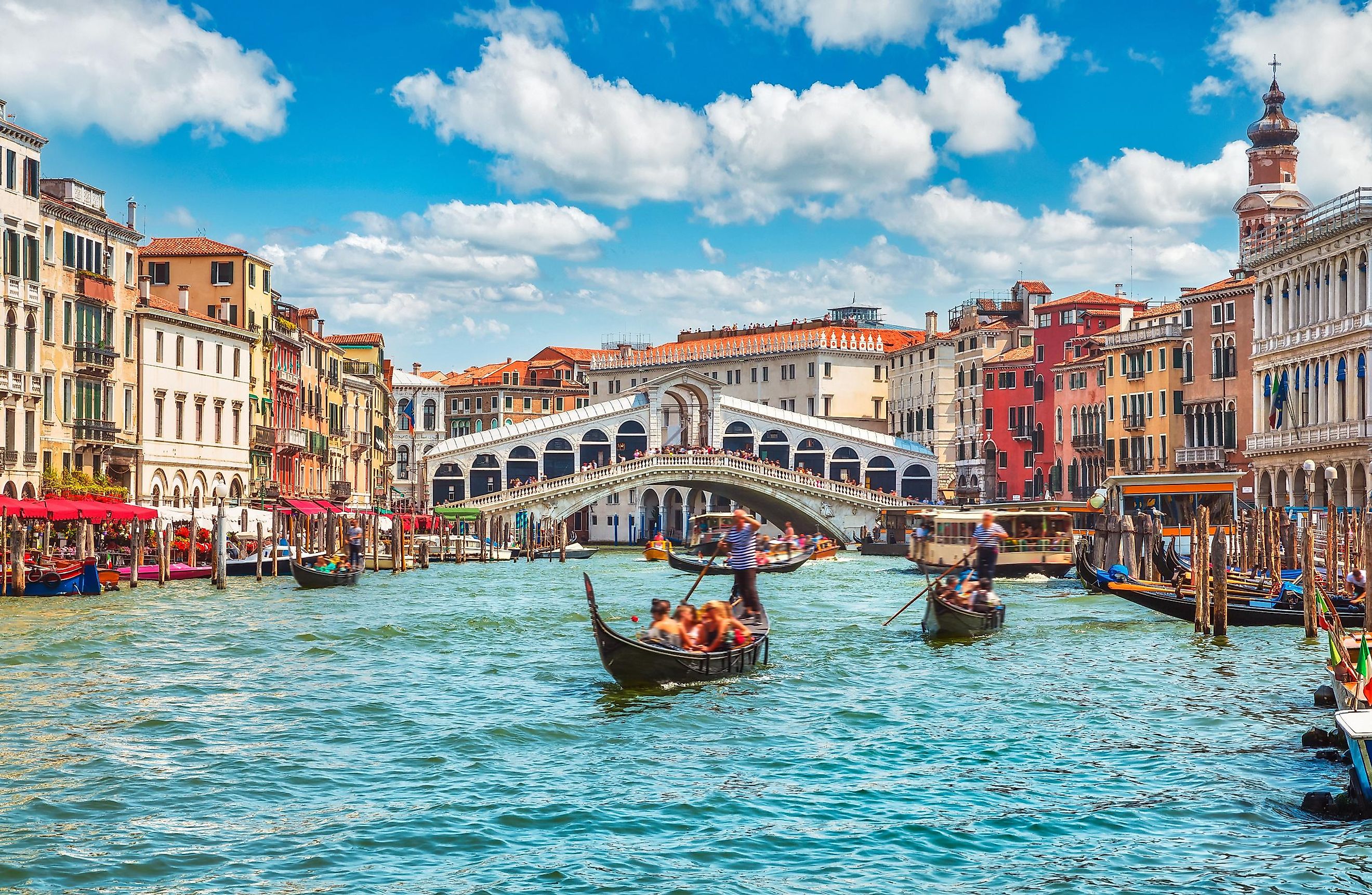
10 Stunning Arch Bridges from Around the World
Arch bridges are one of the oldest, most functional and beautiful architectural muses in the world. The magnificent arches bear great loads by evenly spreading pressure along the structure to support their own weight, traffic, and sometimes even homes and trees. Below is a list with a mix of both modern and centuries-old arch bridges that are spectacular feats of architecture.
Aqueduct of Segovia Bridge (Segovia, Spain)
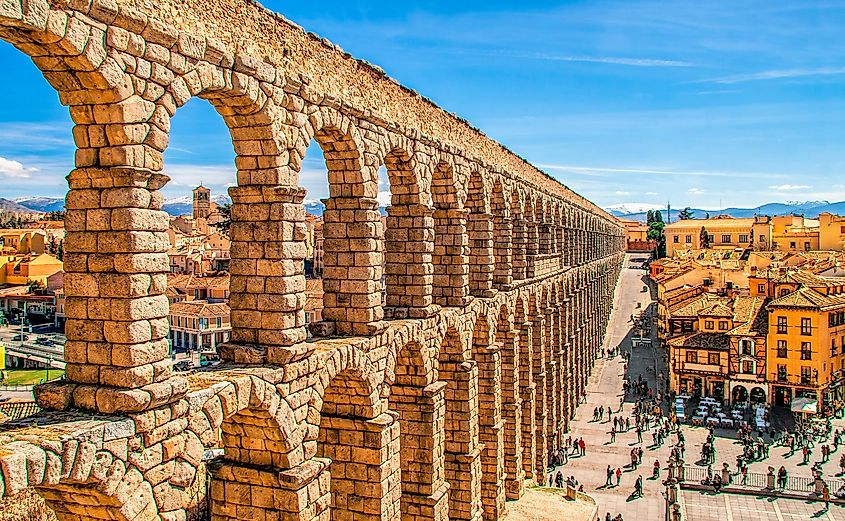
The notable two-level aqueduct is one of the world’s best-preserved bridges from the Roman times. It reaches its tallest point at 93 feet 6 inches from the foundation set-at 19 feet and 8 inches.
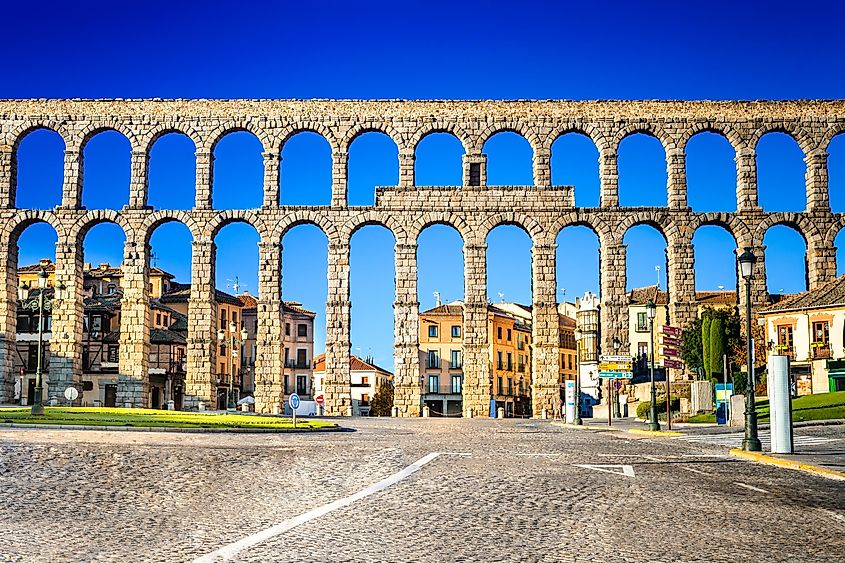
A combination of 75 single and 44 double arches, followed by 4 single arches make the bridge especially picturesque. The graceful Aqueduct of Segovia Bridge is reinforced with strong pillars for a total of 167 arches that extend to the city and Plaza de Diaz Sanz in Segovia.
Charles Bridge (Prague, Czech Republic)
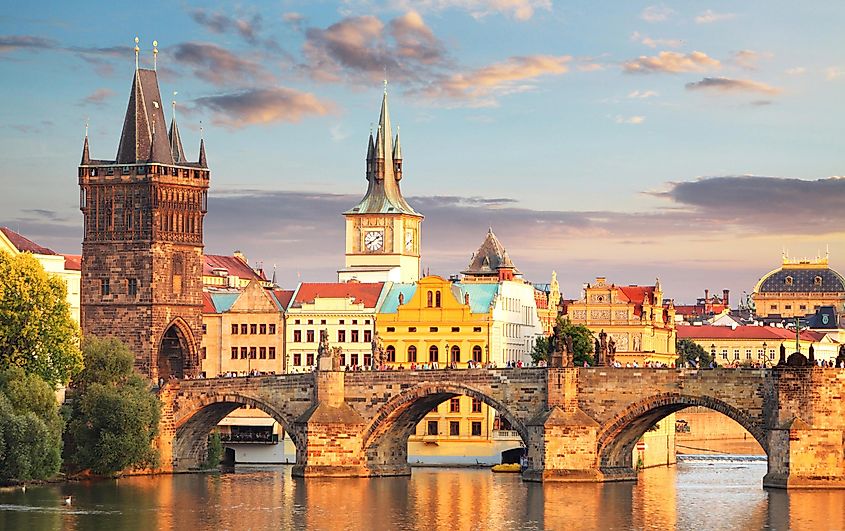
The remarkable Charles Bridge in Prague is one of the world's most ancient bridges, built over the Vltava River between 14th and the 15th centuries. The city's oldest and fist stone bridge, was originally called, the Stone Bridge. Charles Bridge is a true Gothic glory with 30 unique baroque-style statues beautifying the balustrade.

The old and sturdy-looking bridge boasts deep roots to 1357 as a major construction project in the city. Only completed in the early 1400s, the impressive 2,037-feet stone-arched bridge with decorations connects the Old Town to the Prague Castle in the Lesser Quarter.
Confederation Bridge (Borden-Carlton, Canada)
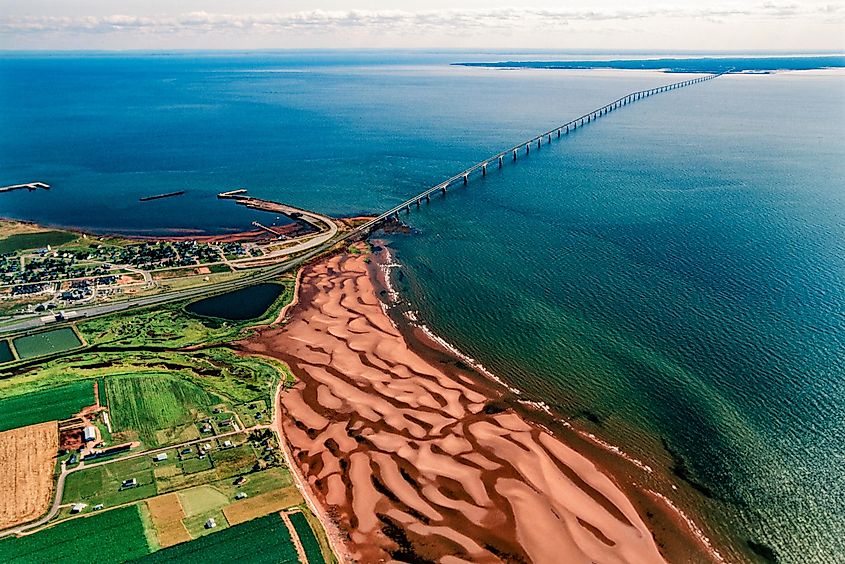
The eight-mile-long Confederation Bridge links Prince Edward Island in Canada to the mainland New Brunswick. It opened in 1997 spanning the east coast, as the world's longest bridge over ice. The robust bridge is magnificent for sheer immensity that emanates unwavering girth.
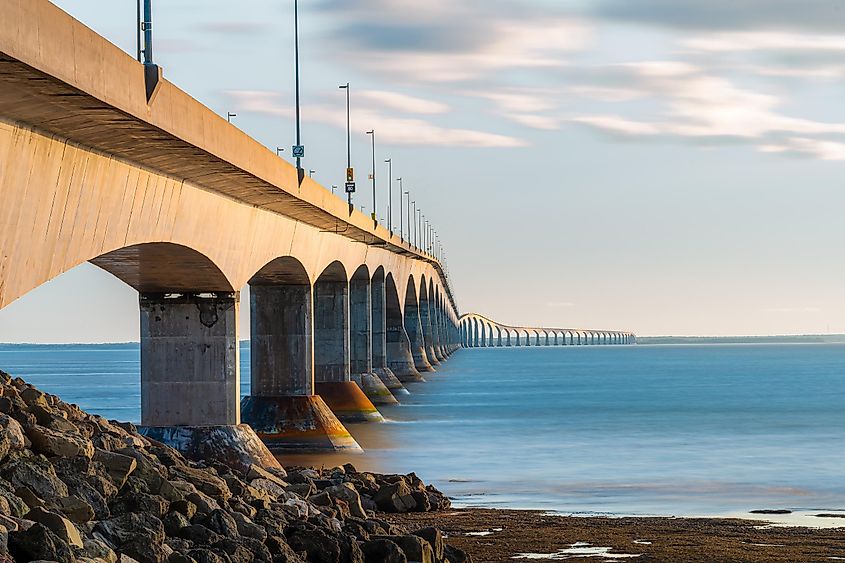
Abegweit Passage of Northumberland Strait is known for severe weather that 62 piers 131 feet above the water easily withstand. Confederation Bridge's concrete box girder structure laughs in the face of powerful natural forces like wind and waves.
Constitution Bridge (Venice, Italy)
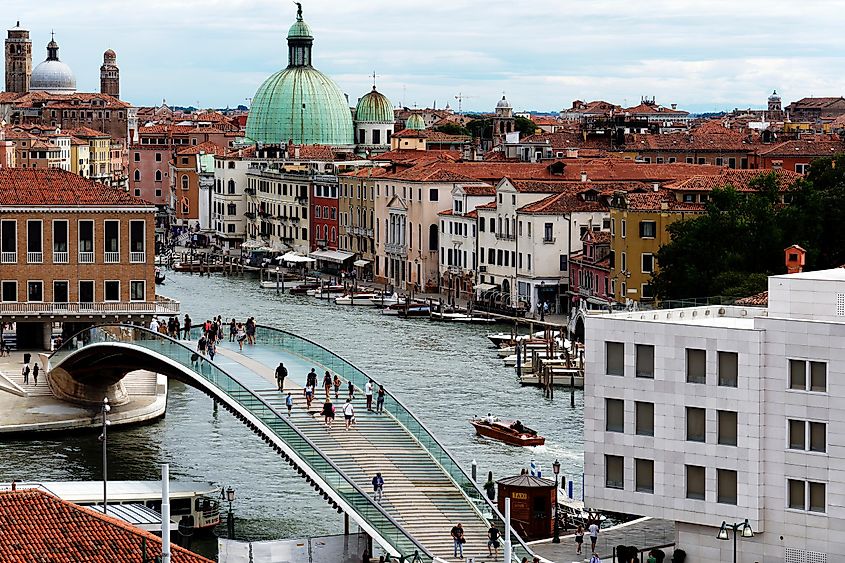
Venice's newer bridge completed 2008, was made instantly-iconic for the delicate see-through design unlike most other bridges in the city full of them. Venice's Constitution Bridge was designed by a “starchitect,” Santiago Calatrava.
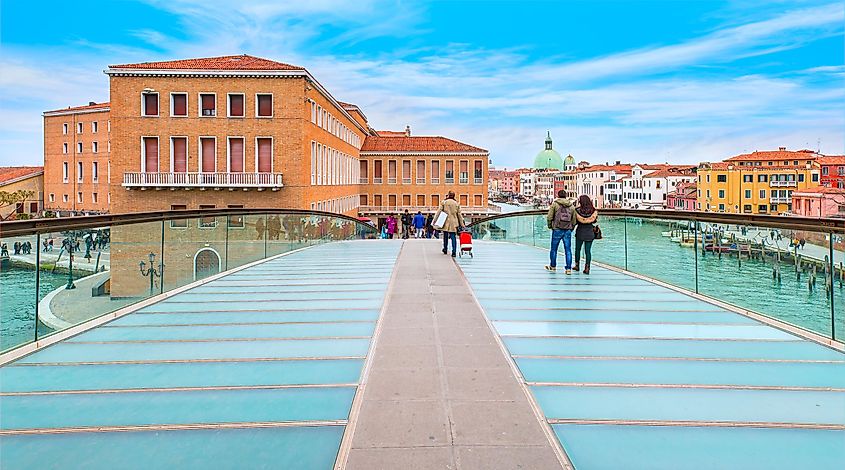
Its concave, ribbed architectural design is aesthetically-pleasing and unique. It looks great from both side-traps, the air, and while boating underneath, as well as affords great vistas of the city for the trespassers.
Ponte Vecchio (Florence, Italy)
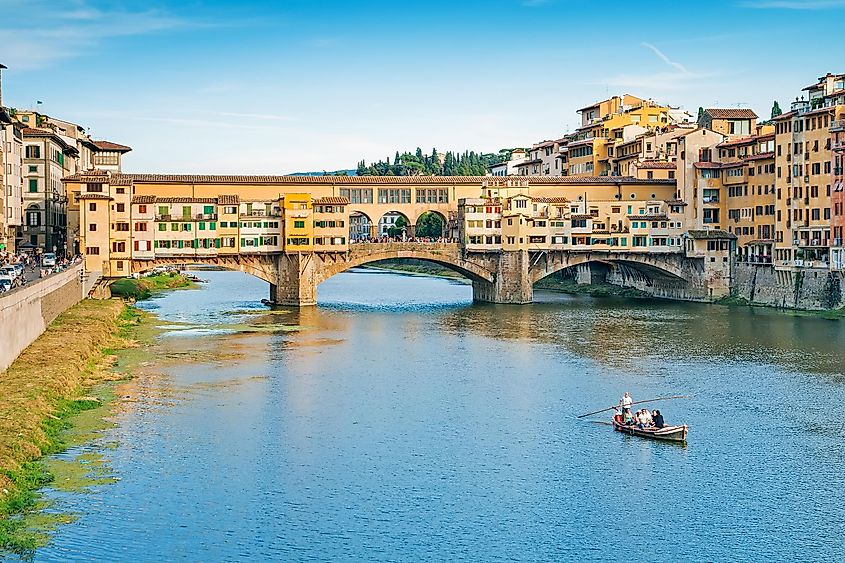
The famously-beautiful bridge was once traversed by the Italians for shops and houses along its second story. Today, the Ponte Vecchio is void of a market and butchers but has shops with art dealers and jewelers. It was rebuilt following the flood of 1345, and was the only one of its kind to survive the Second World War in Florence.
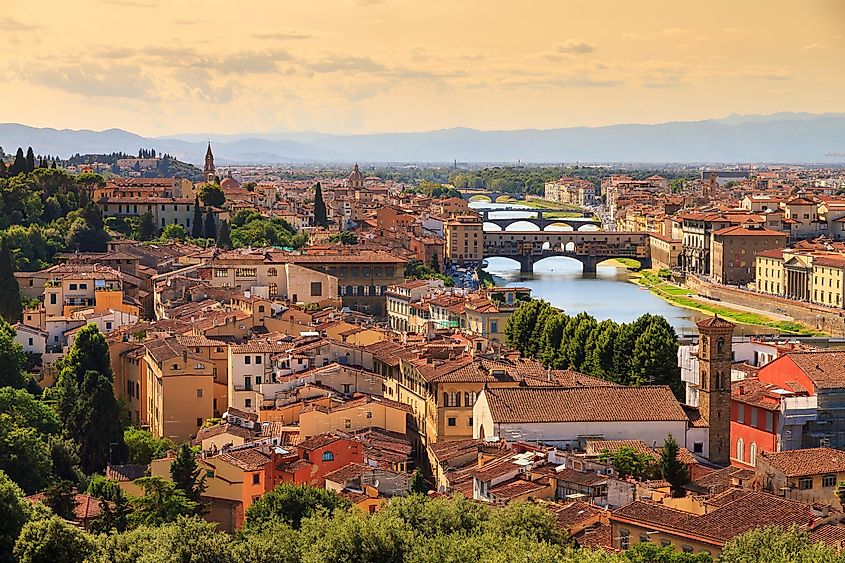
Ponte Vecchio was also upgraded in 1565 with a second story that brought it back to its glorious look from the olden days when workshops and houses stretched even beyond its breadth. The stone closed-spandrel segmental arch Ponte Vecchio spans across the Arno River, as the most prominent example of diversity in which the bridges can function.
Pont Del Diable (Tarragona, Spain)
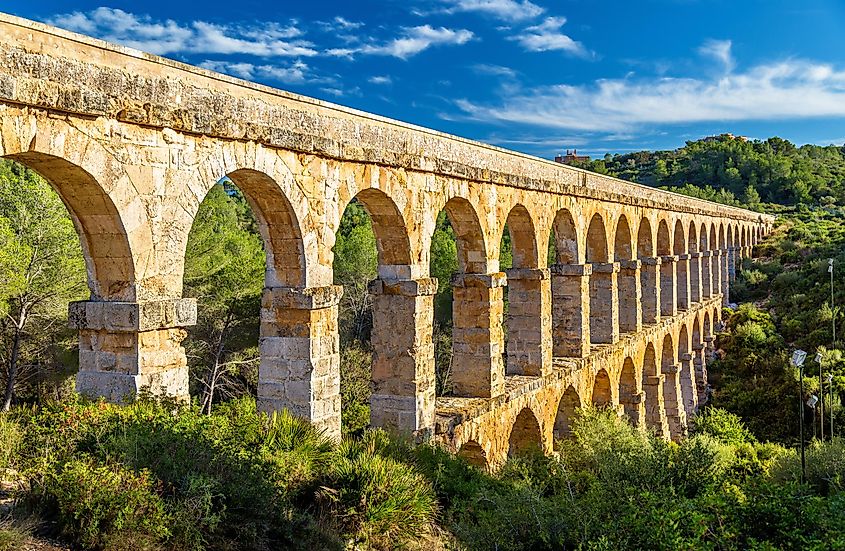
Pont del Diable is known for the ancient look, arch-upon-arch design, and moniker of the "Devil’s Bridge." The impressive bridge today is just a fragment of a former grand conduit that supplied water from the Francolí River to the ancient city of Tarraco.
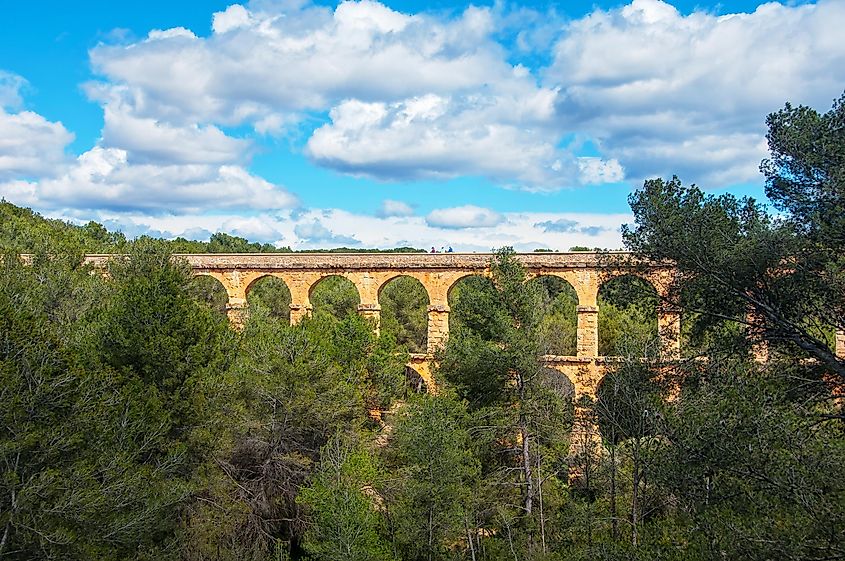
Today, one can find the 25 arches crowning 11 arches at the lower level in an impressive two-layered fashion, near the city of Tarragona. The structure was built in the 1st century A.D. without mortar-used to combine its large-cut stones into uniform, 19-some feet-wide, arches.
Pont Du Gard (Vers-Pont-du-Gard, Southern France)
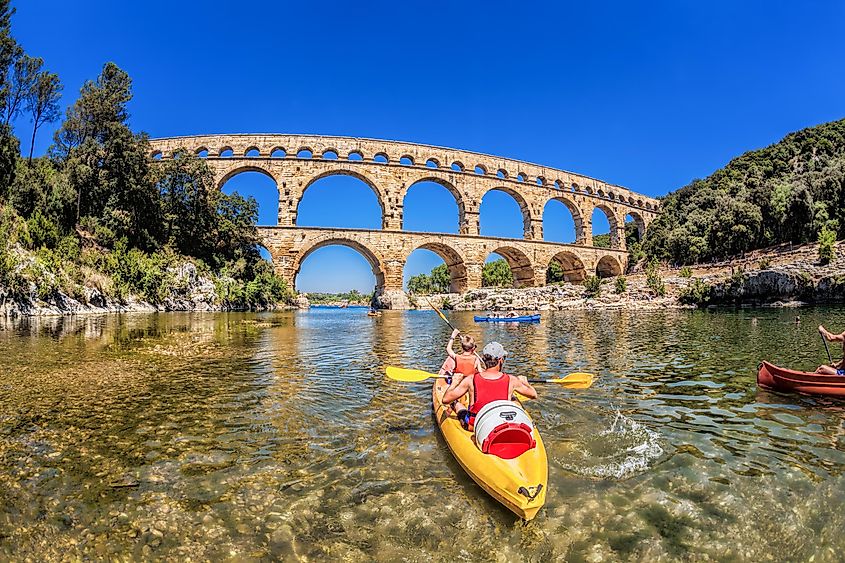
Roman-built Pont du Gard is an aqueduct bridge crowning southern France. It is one of the world's oldest working structures from the first century A.D, built around 40 and 60 A.D. The bridge was erected 160 feet-high in three tiers of Shelly limestone arches.
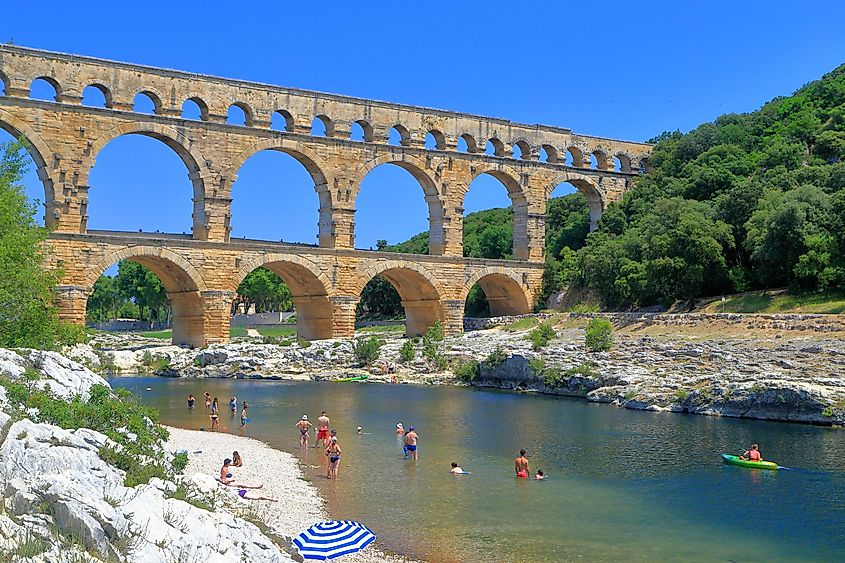
One can find this, highest of all Roman aqueducts, in the town of Vers-Pont-du-Gard. Pont Du Gard spans across the Gardon River for over 902 feet, with 25 upper spans, 11 mid-spans, and 6 lower spans.
Rialto Bridge (Venice, Italy)
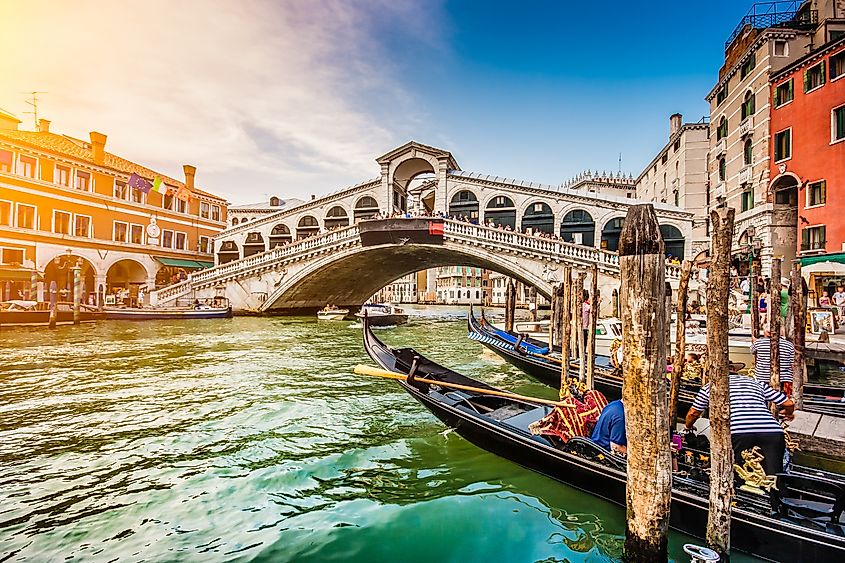
Venice's Rialto Bridge is clearly the grandest arch in the city full-of-them. The original pontoon bridge from the 12th century collapsed several times, and was re-built from different materials after each downfall. The stone version from the late 16th century, is the city's oldest-standing bridge over the Grand Canal. The truly-Venetian architecture with the renowned peak is an access point to the financial center of Venice.
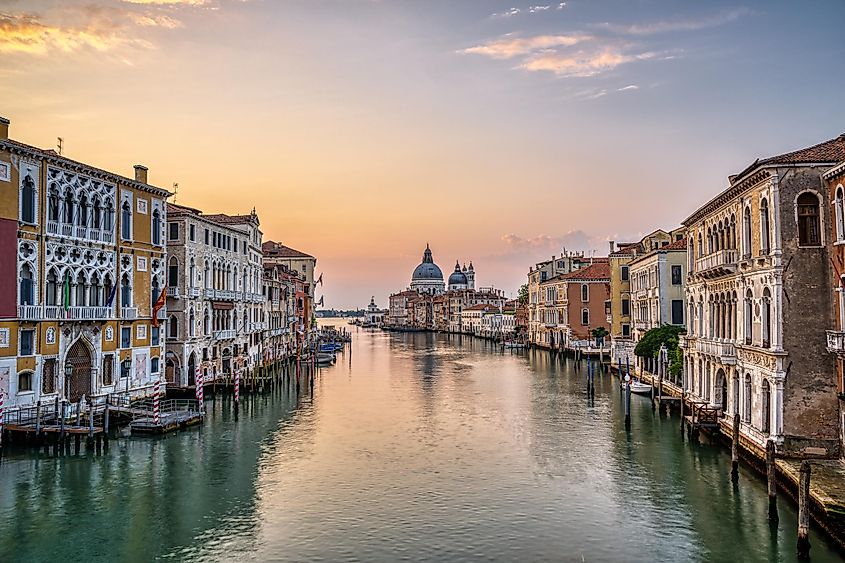
The planned crossing that would also allow passage for ships underneath, was designed by the masterful Antonio da Ponte. His inspiration defied all the critics at the time and topped steep competition, like Michelangelo himself. The arch bridge was erected in three years, reaching a height of 24 feet, and with girth of 75 feet for holding shops along its sides.
Stari Most (Mostar, Bosnia and Herzegovina)
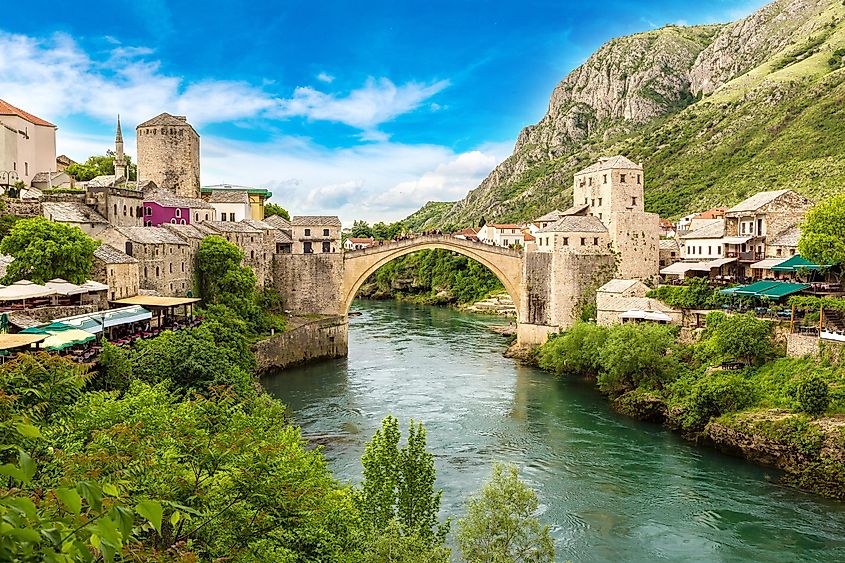
The limestone-made “Old Bridge” opened in the 16th century by the Ottomans, as one of the world's finest Islamic architectural feats at the time. Stari Most functioned for four centuries only to be destroyed in the Croat-Bosniak War in 1993. The re-built 2004 version at the original location over the Neretva River is none-the-less magnificent. One can find this wonder in Mostar, Bosnia and Herzegovina in-between two cities.
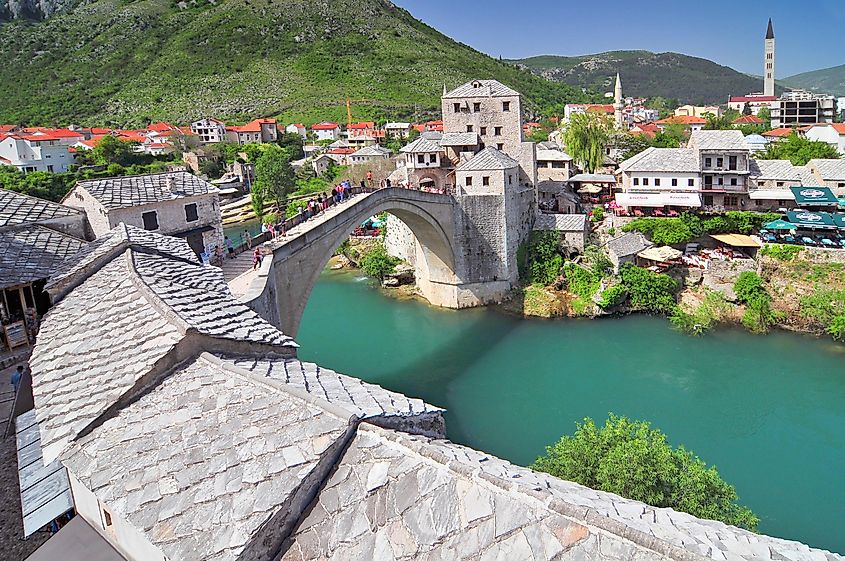
The 95-some feet long and 13-some feet wide Stari Most boasts clearance arch below of 60.6-feet in mid-span. The arches made-of local stones Tenelija are reinforced by abutments of limestone in-lieu of foundations. The pedestrian-only bridge is a popular and unique Balkan-made landmark. It is also host to an annual diving competition off-the bridge for young lads that honors their transition into manhood.
Sydney Harbour Bridge (Sydney, Australia)
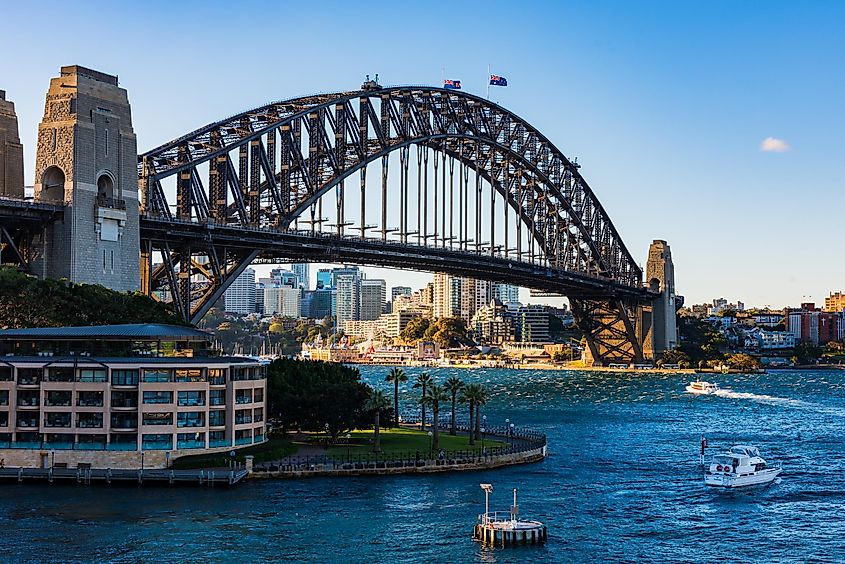
The steel-arch structure is one of the most recognizable sights in the world, set in the iconic city, next to the aesthetic opera house. The Sydney Harbour Bridge is integral to Sydney's skyline, dominating over it with lit-up grandness during the night. The bridge was opened in 1932 as the world’s tallest steel arch bridge, with the record still-standing for a truly spectacular appeal any hour-of-day.
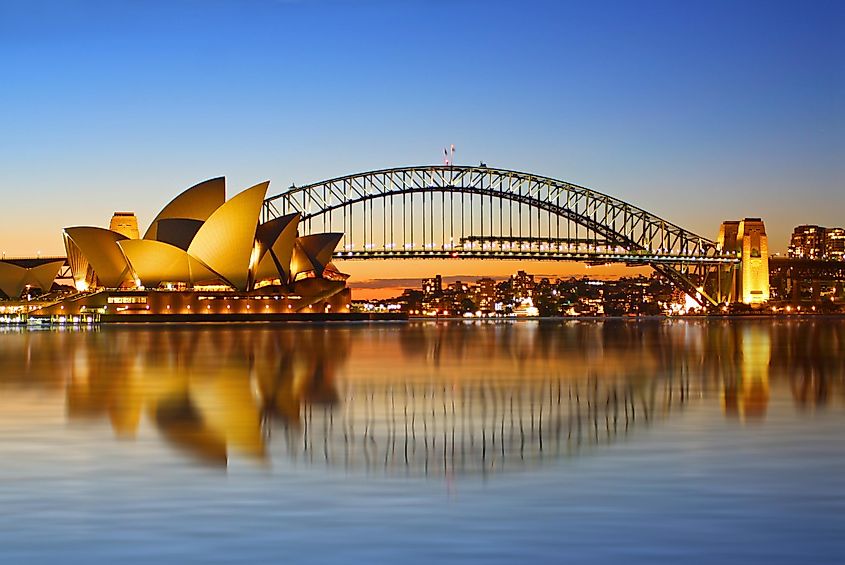
Sydney Harbor Bridge was completed in eight years with six million hand-driven rivets. These hinges were strategic components to handle the city's extreme sun that would afford steel expansion and contraction through all temperatures. The steel arch named the "Coathanger" crosses 3,700 feet over water and reaches 440 feet at the highest point. People, traffic, and cyclists traverse over 160 feet of the widest long-span bridge in the world until 2012.
These gorgeous feats of architecture connect lands, people, and even different municipalities in a truly jaw-dropping sight. Roman engineers were known for the arching method in bridge-building, with many still standing as a load-bearing testament in the face of time. The world's oldest arch bridge, stone-made Caravan Bridge across the Meles River in Izmir, Turkey, is still functioning from 850 B.C.











